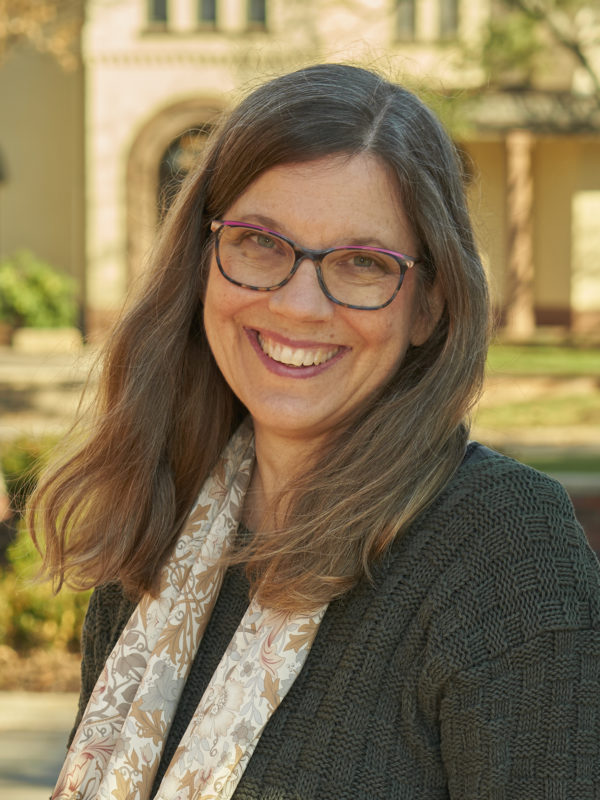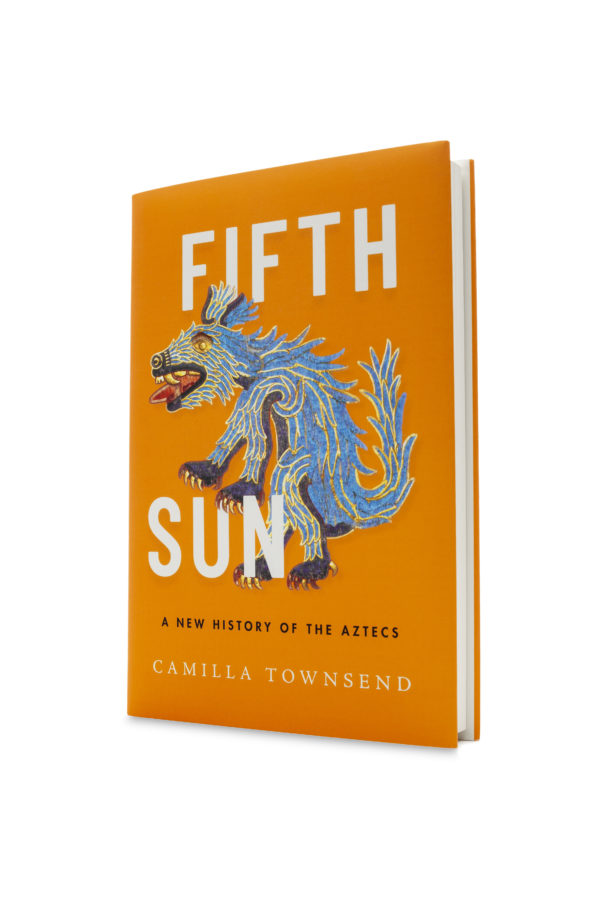August 9th 2021 in Cundill history hub
Camilla Townsend on winning the Cundill History Prize

Eight months on from winning the 2020 Cundill History Prize, Fifth Sun author Camilla Townsend describes her experience and shares what she has been reading and working on since.
In December 2020 you were announced as winner of the Cundill History Prize for your book Fifth Sun: A New History of the Aztecs. What did this mean to you, and what impact has this had since then?
I was absolutely stunned when my book won: several days passed before I really believed it! Since then, I have been deeply glad that it proved to be true—for many people have written to me, asking about the indigenous-language sources on which the book is based. They are getting the attention they deserve! Right now, I am in the midst of transferring about half the prize money to Ediciones Era, a Mexican press that will use the funds to publish the work of indigenous intellectuals and scholars.
One of the brilliant aspects of Fifth Sun is how it is based on research in Nahuatl to tell the story of the Aztecs from their own perspective. What led you to taking this approach?
It was when I was working on a book for other scholars—about the nature of the Nahuatl-language histories that were written down in the sixteenth century—that I realized I should try to write the history itself. A book about who wrote these documents, and when and why they did so, would be of limited use if only a few people knew what the sources actually said. It would be a bit like writing a detailed biography of Charles Dickens for an audience that had never seen any of his novels, not even a selection!
And what have you been reading recently?
I have been reading and rereading two fascinating books on the history of indigenous women in colonial Latin America — Cacicas: The Indigenous Women Leaders of Spanish America, 1492-1825, edited by Margarita Ochoa and Sara Vicuña Guengerich (2021) and The Woman Who Turned into a Jaguar and Other Narratives of Native Women in Archives of Colonial Mexico, by Lisa Sousa (2017).
What do you have planned for the coming year or so? Are there any new projects that you are able to tell us about?
These days I am working on a completely different project—a book about the Lenape, the Native Americans who once lived in what is now the greater New York City area. After the Dutch and English colonists came, the Lenape were driven away and eventually settled in what is today Oklahoma, where their descendants still live. (They are now called the Delaware.) In the coming year I will be studying some of the stories they were still telling at the end of the nineteenth century.
If you could give one piece of advice to aspiring historians and history writers, what would that be?
Of course, scholars must be scrupulous and thorough. But I think young historians should also learn some lessons from the greatest fiction writers and most talented detectives. Close your eyes from time to time. Let your mind roam among all the evidence you have. Make the leap— Try to imagine the world as it was then. It will be worth the effort.

Camilla Townsend will deliver the 2021 Cundill Lecture as part of the Cundill History Prize Festival this December 1-2.
For more information on Camilla Townsend’s Cundill History Prize winning book Fifth Sun: A New History of the Aztecs, visit Oxford University Press.
For more information on the 2020 prize, including author interviews, video content, and feedback from the prize’s 2020 jurors, visit: https://www.cundillprize.com/r...
Share this
Archive
2023: September (2) October (2)2022: April (1) August (3) December (2)
2021: August (1) September (1) December (3)
2020: August (1) October (2) November (2)
2019: September (3) November (2)
Recent Hub Contributions
Partnership Focus: Bookshop.org
Partnership Focus: Literary Review of Canada
Partnership Focus: HistoryExtra
15th Anniversary Special: Alan Taylor
15th Anniversary Special: Mark Gilbert
15th Anniversary Special: Peter Frankopan
15th Anniversary Special: Camilla Townsend